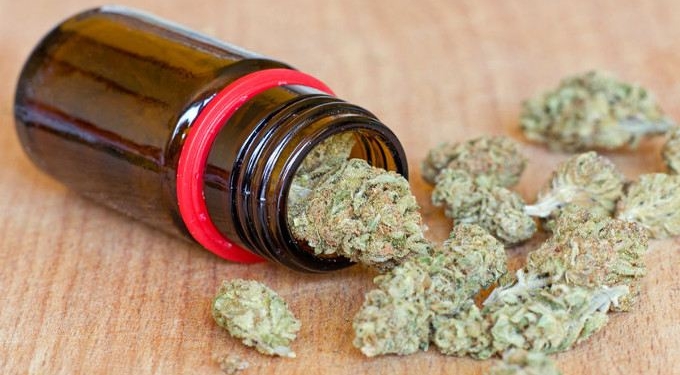
By Emma Fiala | The Mind Unleashed
Illinois is poised to become the 11th U.S. state to legalize recreational marijuana after lawmakers voted on Friday to legalize the plant. Governor J.B. Pritzker assured Illinoisans he would sign the bill that would also automatically expunge criminal records of prior convictions of minor pot possession.
This will have a transformational impact on our state, creating opportunity in the communities that need it most and giving so many a second chance. I applaud bipartisan members of the General Assembly for their vote on this legislation.
— Governor JB Pritzker (@GovPritzker) May 31, 2019
Steve Hawkins, executive director for the pro-legalization Marijuana Policy Project, said:
“Illinois is on the brink of replacing a shameful, destructive policy with the most far-reaching cannabis law ever enacted.”
Pritzker, Illinois’ billionaire governor, took office in January of this year after campaigning on the legalization of marijuana, among other things. His office didn’t give a timeline for when he might sign a bill into law, but he tweeted his intentions soon after the bill’s approval.
In the interest of equity and criminal justice reform, I look forward to signing this monumental legislation.
— Governor JB Pritzker (@GovPritzker) May 31, 2019
The measure, passed by the House of Representatives on Friday, will allow for the purchase and possession of cannabis beginning in 2020. The bill was approved by the Senate on Wednesday and is expected to bring in an estimated $170 million thanks to the sale of producer licenses in an effort to combat Illinois’ chronic budget shortfalls. In fact, the states credit rating has fallen to just one level above junk-grade, rendering Illinois the lowest-rated state in the U.S. Consumers will pay up to 34.75% tax on cannabis purchases, depending on the potency of the product.
The new system, that will go into effect on January 1, 2020, will allow adults to buy and possess up to 30 grams of cannabis in addition to small amounts of highly concentrated extracts and edibles. Non-residents will be able to buy half the amount of residents.
The legislation, drafted by state Rep. Kelly Cassidy and Sen. Heather Steans, was written in a way “that centers equity and inclusion in the industry, that centers restoration of records and social justice components and restoration of communities,” Cassidy told the Chicago Sun-Times in April.
In a tweet, Pritzker said, “This will have a transformational impact on our state, creating opportunity in the communities that need it most and giving so many a second chance.”
Prior convictions for possession of cannabis up to 30 grams will be dealt with through a clemency process, while the state’s attorney or an individual can request that the court vacate convictions for possession of 30 to 500 grams. An estimated 770,000 minor cannabis-related cases will be expunged.
According to USA Today, “Any tax money left over after would be used to support drug treatment and enforcement programs, improve mental health counseling access, and bolster the state’s general fund.”
In 1996, California became the first state to legalize marijuana for medical use, with over 30 states the following suit. Ten states including Alaska, California, Colorado, Maine, Massachusetts, Michigan, Oregon, Nevada, Vermont and Washington, and the District of Columbia have freed the herb, allowing adults to partake in the recreational use of cannabis. Cannabis remains illegal under U.S. federal law.
Illinois is the second state to legalize recreational cannabis through the legislature and the first state to legalize sales of cannabis in this way. While Vermont also legalized the herb via the legislature, the state currently prohibits commercial sales. Other states have tackled legalization via ballot initiatives.
Supporters say the new measure will create jobs across the state, highlighting the preference given to members of minority groups who seek to get business licenses.
Detractors have gone to unique lengths to attempt to stop the approval of the measure, including State Rep. Anthony DeLuca, who took out a frying pan and an egg in an attempt to make a point as lawmakers debated the bill.
“You see this? This is your brain. There it is folks. This is your brain on drugs,” he said as he cracked an egg into a frying pan in front of his colleagues.
DeLuca’s attempt to harken back to the marketing strategy of the 1980s was met with some laughter and little applause.
The remarks following DeLuca’s stunt took the opposite tone with State Rep. Bob Morgan calling it “nonsense,” a waste of eggs, and “a ridiculous point that was outdated for 30 years.” Ultimately, the Illinois House passed the bill 66 to 47.





![Everything You Ever Wanted to Know About 9/11 Conspiracy Theory in Under 5 Minutes [VIDEO] | by James Corbett](https://consciouslifenews.com/wp-content/uploads/2018/09/911-a-conspiracy-theory-350x250.jpg)










